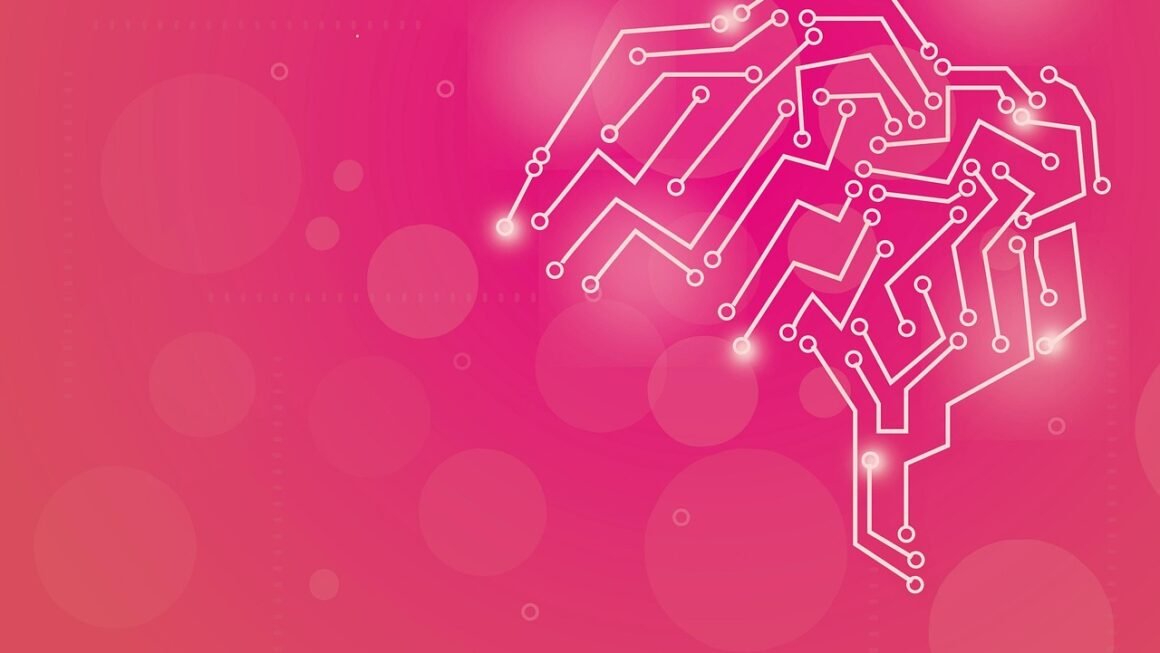Intelligent agents are rapidly transforming the way we interact with technology, evolving from simple assistants to sophisticated problem-solvers. From recommending your next favorite song to managing complex industrial processes, these software entities are increasingly integrated into our daily lives. This blog post will delve into the world of intelligent agents, exploring their capabilities, applications, and future potential, helping you understand how they’re shaping the future of technology.
What are Intelligent Agents?
Defining Intelligence in Agents
Intelligent agents are autonomous entities, typically software-based, that can perceive their environment through sensors, reason about information, and take actions to achieve specific goals. The “intelligence” stems from their ability to:
- Perceive: Gather information from the surrounding environment.
- Reason: Analyze data and make logical deductions.
- Learn: Adapt and improve performance over time.
- Act: Execute actions to influence the environment.
Unlike traditional programs that execute predefined instructions, intelligent agents exhibit a degree of flexibility and adaptability. This makes them well-suited for dynamic and unpredictable environments. A key aspect is their ability to pursue a goal, meaning they’re not just responding to inputs but actively working toward a desired outcome.
Types of Intelligent Agents
Intelligent agents can be classified based on their architecture and complexity. Common types include:
- Simple Reflex Agents: These agents react directly to percepts based on pre-defined rules. They lack memory or the ability to consider past experiences. An example is a thermostat which turns on the AC when the temperature exceeds a set point.
- Model-Based Reflex Agents: These agents maintain an internal model of the world based on past percepts. This model allows them to make decisions even when current percepts are incomplete or ambiguous. Think of a self-driving car navigating based on a map and sensor data.
- Goal-Based Agents: These agents have specific goals they are trying to achieve. They make decisions based on how likely their actions are to achieve these goals. An example is a route planning application that finds the fastest route between two points.
- Utility-Based Agents: Building on goal-based agents, utility-based agents also consider the desirability or “utility” of different outcomes. They aim to maximize their utility, taking into account factors like cost, risk, and reward. A good example is a personalized shopping assistant suggesting products based on your preferences and budget.
- Learning Agents: The most advanced type, learning agents can improve their performance over time through experience. They have a learning element that allows them to modify their internal representation of the world and their decision-making processes. Consider a spam filter that learns to identify new spam emails based on user feedback.
Key Components of Intelligent Agents
Perception and Sensing
Intelligent agents need to gather information from their environment. This is achieved through sensors, which can be physical devices (e.g., cameras, microphones) or software interfaces (e.g., APIs, databases). The quality and relevance of the data gathered by sensors significantly impact the agent’s ability to make informed decisions.
- Example: A weather forecasting agent uses data from weather stations, satellites, and radar systems to perceive atmospheric conditions. The more accurate and comprehensive the data, the better the forecast.
Reasoning and Decision-Making
Once the agent has perceived its environment, it needs to process the information and make decisions. This involves applying reasoning algorithms, such as:
- Rule-based systems: Using “if-then” rules to determine actions.
- Machine learning: Training models to predict outcomes and optimize actions.
- Search algorithms: Exploring different possible actions to find the best solution.
- Logic programming: Using formal logic to reason about knowledge and derive conclusions.
Action and Execution
After making a decision, the agent must execute an action to influence its environment. This could involve controlling a physical device (e.g., a robot arm), sending a message (e.g., an email), or updating a database.
- Example: A smart home agent might adjust the thermostat, turn on lights, or lock doors based on its perception of the environment and its programmed goals.
Applications of Intelligent Agents
Healthcare
Intelligent agents are revolutionizing healthcare by improving diagnosis, treatment, and patient care.
- Diagnosis: Agents can analyze medical images (X-rays, MRIs) to detect anomalies and assist radiologists in making diagnoses. AI-powered tools are increasingly accurate and can help reduce diagnostic errors.
- Personalized Treatment: Agents can analyze patient data to develop personalized treatment plans, considering factors like genetics, lifestyle, and medical history.
- Remote Monitoring: Wearable sensors and remote monitoring devices can collect patient data and send alerts to healthcare providers if there are any concerns. This is particularly useful for managing chronic conditions and providing care for elderly patients.
- Example: IBM Watson Health assists in cancer research by analyzing vast amounts of scientific literature to identify potential treatments and drug targets.
E-commerce
Intelligent agents enhance the online shopping experience by providing personalized recommendations, automating customer service, and optimizing pricing strategies.
- Recommendation Systems: Agents analyze user browsing history, purchase patterns, and product reviews to suggest relevant products. These recommendations increase sales and improve customer satisfaction. Statistics show that personalized recommendations can increase conversion rates by up to 50%.
- Chatbots: AI-powered chatbots handle customer inquiries, provide product information, and resolve customer issues. They reduce the workload on human customer service representatives and provide 24/7 support.
- Price Optimization: Agents analyze market trends, competitor pricing, and customer demand to optimize pricing strategies and maximize revenue.
- Example: Amazon uses intelligent agents extensively for personalized product recommendations, inventory management, and delivery optimization.
Smart Homes
Intelligent agents are central to the functionality of smart homes, automating tasks, optimizing energy consumption, and enhancing security.
- Automation: Agents can control lighting, temperature, and appliances based on user preferences and environmental conditions.
- Energy Efficiency: Agents can optimize energy consumption by adjusting thermostat settings, turning off lights in empty rooms, and managing appliance usage. Studies show that smart home systems can reduce energy consumption by up to 20%.
- Security: Agents can monitor security cameras, detect intrusions, and alert homeowners or law enforcement.
- Example: Google Nest is a smart home system that uses intelligent agents to learn user preferences and automate tasks, such as adjusting the thermostat and controlling smart lighting.
Finance
Intelligent agents are transforming the finance industry by automating trading, detecting fraud, and providing personalized financial advice.
- Algorithmic Trading: Agents can execute trades automatically based on predefined rules and market conditions. This allows for faster and more efficient trading.
- Fraud Detection: Agents can analyze transactions and identify suspicious patterns that may indicate fraud.
- Personalized Financial Advice: Agents can analyze user financial data and provide personalized advice on budgeting, investing, and retirement planning.
- Example: Many investment firms use intelligent agents for algorithmic trading, taking advantage of subtle market fluctuations that humans might miss.
Challenges and Future Trends
Ethical Considerations
The increasing use of intelligent agents raises ethical concerns, such as:
- Bias: Agents can inherit biases from the data they are trained on, leading to unfair or discriminatory outcomes.
- Privacy: Agents collect and process vast amounts of personal data, raising concerns about privacy and security.
- Transparency: The decision-making processes of some agents can be opaque, making it difficult to understand why they make certain decisions. This lack of transparency can erode trust and accountability.
- Job displacement: As agents automate tasks, there are concerns about potential job losses.
Future Trends
- Explainable AI (XAI): Developing agents that can explain their decision-making processes to improve transparency and trust.
- Federated Learning: Training agents on decentralized data sources to improve privacy and security.
- Reinforcement Learning: Developing agents that can learn complex tasks through trial and error, without explicit programming.
- Human-Agent Collaboration: Designing agents that can work seamlessly with humans to solve complex problems.
Conclusion
Intelligent agents are poised to play an increasingly important role in our lives, transforming industries and shaping the future of technology. By understanding their capabilities, limitations, and ethical implications, we can harness their power to create a more efficient, equitable, and intelligent world. As AI technologies continue to advance, expect intelligent agents to become even more sophisticated and integrated into every facet of modern society.



